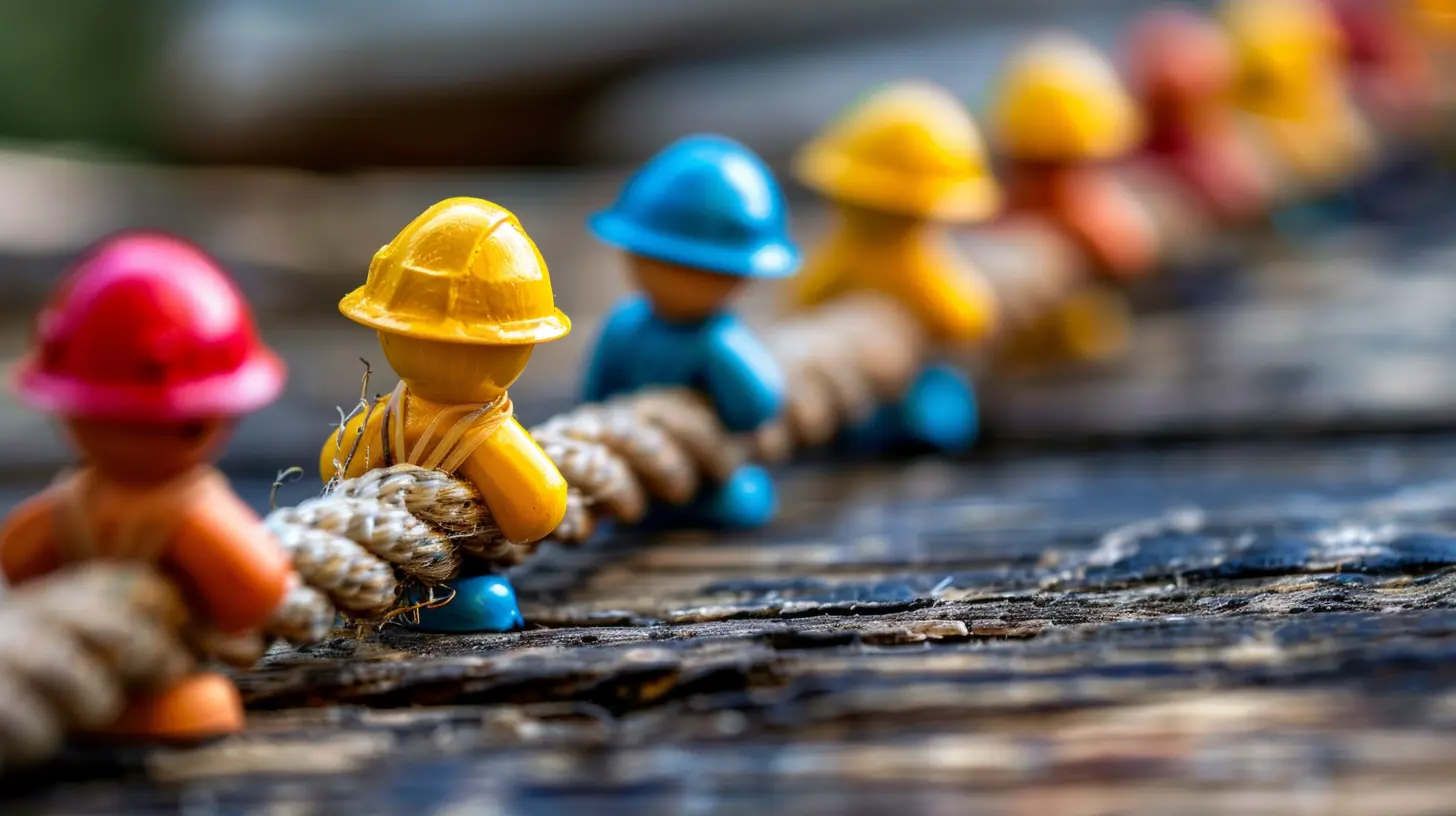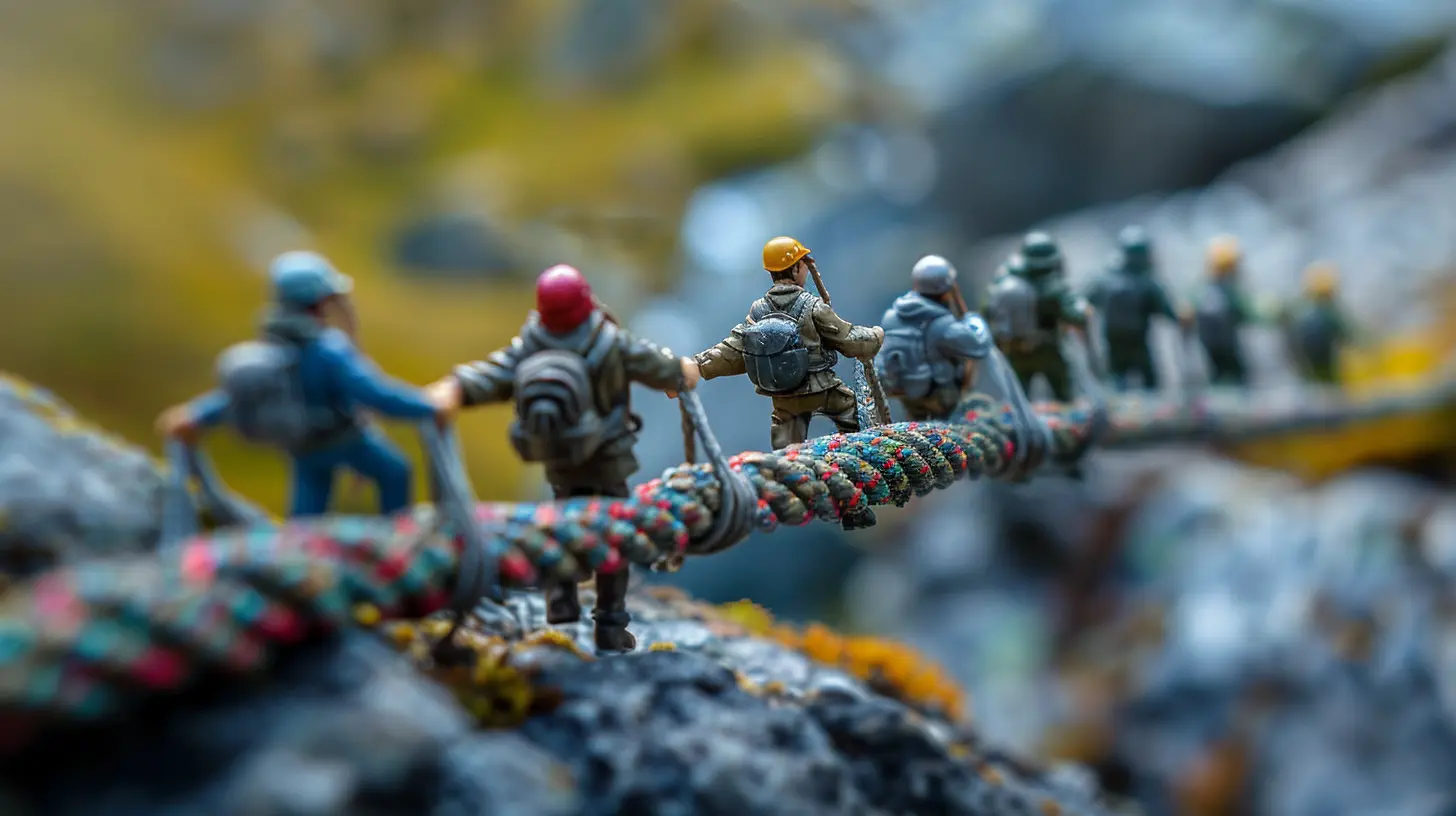From Teamwork to Trust: Building Connections That Last
14 October 2025
When you think about a great team, what comes to mind? Maybe it's a group of individuals who seem to effortlessly flow together, achieving things as if it’s second nature. Or perhaps it's that unshakable sense of trust—a vibe that screams, “I've got your back.” But here’s the thing: teamwork and trust don’t magically appear overnight. They’re like planting seeds in a garden. You need the right soil (communication), a little sunlight (collaboration), and of course, time to let everything blossom.
In today’s fast-paced world, building connections that last isn’t just a nice-to-have; it’s a must-have. Whether you're running a business, working on a project, or simply aiming to create more meaningful relationships, teamwork and trust are the foundation of it all. Let’s dive into how you can cultivate these elements and turn your work environment—or any group dynamic—into something truly remarkable.
Why Teamwork Is the Glue That Binds
Have you ever heard the saying, “Teamwork makes the dream work”? It might sound cliché, but it’s true. A group of talented individuals won’t get very far if they don’t know how to work together. Teamwork is like the engine in a car—it keeps everything running smoothly.When people collaborate effectively, they bring unique skills and perspectives to the table. Think of it this way: if each person is a puzzle piece, teamwork is what helps those pieces fit together perfectly. It’s about understanding each other's strengths, compensating for weaknesses, and most importantly, finding common ground.
But here’s a kicker: teamwork isn’t just about dividing up work and calling it a day. It’s about creating an environment where everyone feels like they belong. When people feel included, they’re more likely to put their best foot forward. And when the going gets tough? That sense of unity can make even the most daunting challenges manageable. 
The Role of Communication: The Bridge to Understanding
Let’s be honest—without communication, teamwork is like trying to row a boat with no paddle. It’s exhausting and ultimately unproductive. Good communication is the backbone of any successful team.Think of communication as a bridge. It connects ideas, clears misunderstandings, and strengthens bonds. Whether it’s a quick email, an in-depth meeting, or a casual chat over coffee, every exchange contributes to building trust. And trust? Well, that’s the foundation of any lasting connection.
But effective communication isn’t just about talking—it’s about listening too. Have you ever noticed how reassuring it feels when someone genuinely listens to you? It’s like they’re saying, “I value your opinion.” That’s the magic of active listening. When team members take the time to hear each other out, it fosters mutual respect and understanding.
Pro tip: Encourage open communication in your team. Create a space where people feel safe to express their thoughts without fear of judgment. Trust me, it works wonders. 
Trust: The Ultimate Currency in Any Relationship
If teamwork is the engine, trust is the fuel that keeps it running. Without trust, even the most skilled team will crumble under pressure.But what is trust, really? It’s that deep, unspoken belief that someone has your back. It’s knowing that your colleagues—or friends, or family—will stand by you, even when things go south. Building trust takes time, but the payoff is huge. With trust, people are more likely to take risks, share ideas, and support one another.
Now, how do you build trust? Start with transparency. Be honest, even when it’s uncomfortable. Own up to mistakes and give credit where it’s due. Consistency is another biggie. If your actions align with your words, people will naturally start to trust you.
And don’t underestimate the power of vulnerability. Sharing a little bit about yourself—your struggles, your aspirations—can make you relatable and approachable. Think of it as peeling back the layers of an onion. The more you share, the deeper the connection becomes. 
Turning Teams into Tribes
Great teams don’t just work together—they become tribes. A tribe is a group of people bound by shared values, goals, and a sense of belonging. Think about your favorite sports team or even a close-knit group of friends. There’s an energy, a camaraderie, that makes you want to be part of that group.Turning your team into a tribe doesn’t require a huge overhaul. It’s about fostering a culture where people feel connected, not just to the work, but to each other. Celebrate wins, no matter how small. Share stories, laugh together, and create rituals—whether it’s Friday pizza lunches or virtual coffee chats.
And here’s a tip: recognize effort, not just outcomes. When people see that their hard work is appreciated, they feel valued. And when they feel valued? They stick around.
Overcoming Challenges: The True Test of Connection
Let’s face it—no team is perfect. Misunderstandings happen, deadlines get missed, and conflicts arise. The true test of a team isn’t how they perform when everything’s smooth sailing; it’s how they handle the storm.Conflict might feel uncomfortable, but it’s not inherently a bad thing. In fact, healthy conflict can strengthen a team. It’s all about resolving disagreements in a way that’s constructive, not destructive. Focus on the problem, not the person. Approach conflicts with an open mind and a willingness to compromise.
And don’t forget: every challenge is an opportunity to build resilience. When a team overcomes a tough situation together, it creates a sense of accomplishment and reinforces trust.
Practical Steps to Build Connection
So, how do you take all this and apply it in real life? Here’s a quick rundown of actionable tips:1. Set clear goals: When everyone knows what they’re working towards, it creates alignment and purpose.
2. Encourage feedback: Feedback isn’t criticism—it’s a way to improve. Make it a two-way street.
3. Lead by example: Walk the talk. If you want your team to trust each other, show them what that looks like.
4. Foster emotional intelligence: Build awareness around emotions—yours and others’. It helps in understanding and empathizing.
5. Celebrate diversity: Different perspectives can lead to innovative solutions. Embrace them.
The Ripple Effect of Trust
When teamwork and trust are in full swing, the effects ripple beyond just the immediate group. The workplace becomes more productive, morale skyrockets, and people actually enjoy coming to work. Not to mention, these principles extend to personal relationships as well.Imagine if we applied the same effort to our friendships, families, and communities. What kind of world could we create? Something to think about, right?
A Final Thought
At the heart of it all, building connections that last is about being human. It’s about showing up, being present, and caring. Whether it’s in business or life, the principles are the same: teamwork, trust, and authenticity pave the path to deeper, more meaningful relationships.So, start small. Smile more. Listen intently. Encourage collaboration. And most importantly, be someone others can rely on. Because at the end of the day, the connections we build aren’t just about work—they’re about life.
all images in this post were generated using AI tools
Category:
Team BuildingAuthor:

Ian Stone
Discussion
rate this article
1 comments
Lyra Martin
This article insightfully highlights the pivotal role of trust in fostering lasting team connections. By emphasizing open communication and shared goals, it underscores that effective teamwork transcends mere collaboration, ultimately creating a resilient and cohesive organizational culture. A must-read!
October 16, 2025 at 4:30 AM

Ian Stone
Thank you for your thoughtful feedback! I'm glad you found the article's focus on trust and communication valuable for fostering strong team connections.


